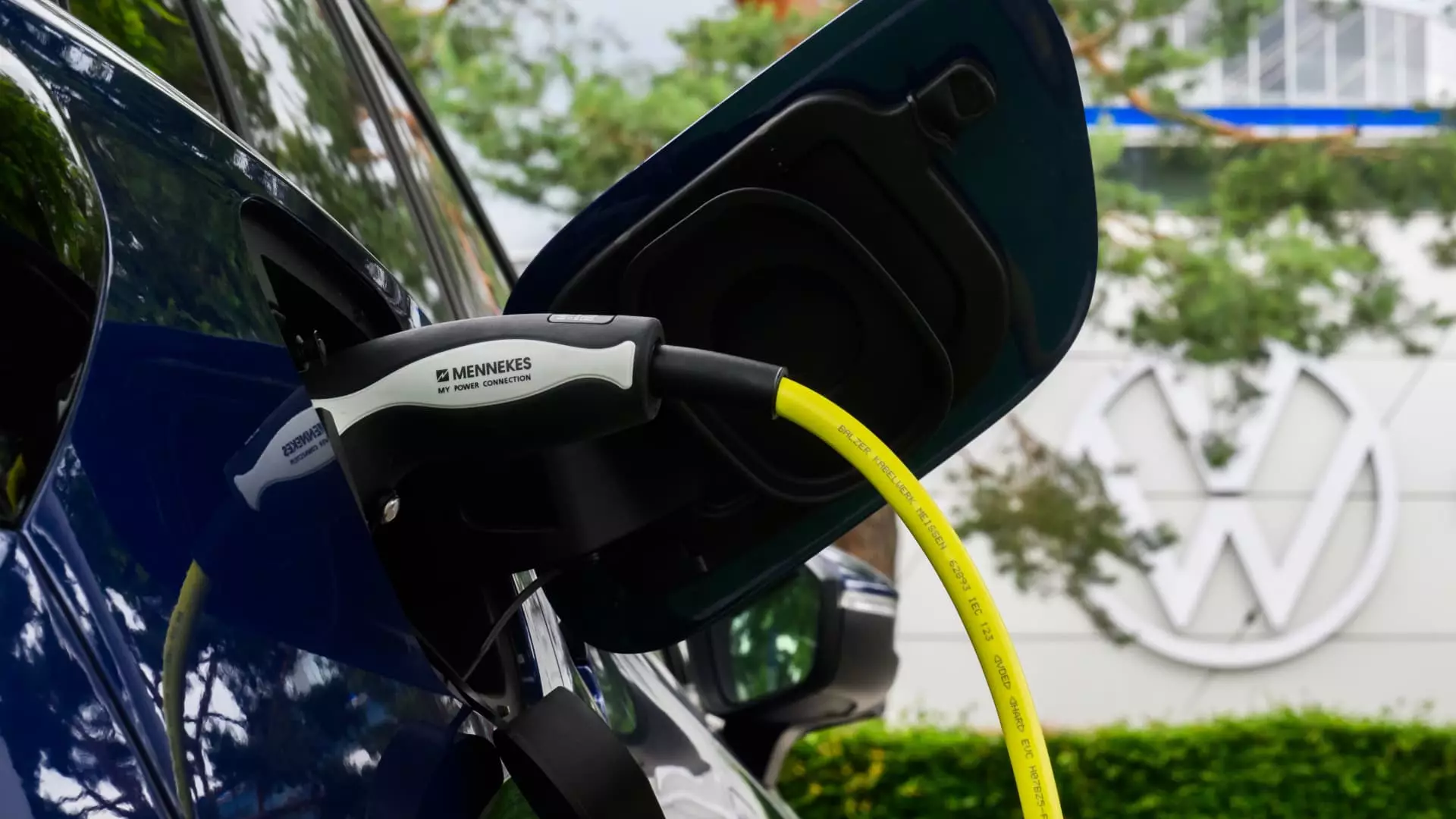European car manufacturers are currently navigating a series of challenges that are impeding their progress towards full electrification. Volvo Cars recently made headlines when it announced a departure from its initial plan to only sell electric vehicles by 2030. The company cited the need to adapt to changing market conditions and be more pragmatic and flexible in its approach. Instead, Volvo now aims for between 90% and 100% of its car sales to be fully electric or plug-in hybrid models by the same deadline.
Other automotive giants, including crisis-stricken Volkswagen, Ford, and Mercedes-Benz Group, have also announced delays in their targets to phase out sales of internal combustion engine vehicles in Europe. The industry as a whole seems to be grappling with the realization that continued investment in internal combustion engine technology is necessary to remain competitive. Tim Urquhart, a principal automotive analyst at S&P Global Mobility, emphasized that manufacturers need to keep investing in order to meet consumer demand and regulatory requirements.
Government regulations in key markets are playing a significant role in shaping the transition to electric vehicles. Countries like the U.K. are introducing mandates that require a certain percentage of new car sales to be zero-emission vehicles, with the eventual goal of reaching 100% by 2035. While these mandates aim to reduce polluting vehicles on the road, they also pose challenges for manufacturers who must align their production with government requirements. Urquhart noted that regulators and manufacturers need to find a balance between meeting consumer demand and regulatory standards.
Volvo Cars highlighted several challenges facing the auto industry’s electrification ambitions, including a slower-than-expected rollout of charging infrastructure, the withdrawal of government incentives in some markets, and the uncertainty surrounding tariffs on electric vehicles in various regions. These challenges underscore the need for stronger and more stable government policies to support the transition away from fossil fuels. Despite these obstacles, analysts stress that carmakers cannot afford to ignore the shift towards electric vehicles, as the industry’s direction is clear.
Consumers are facing a significant shift in the automotive industry, as they are being asked to embrace a new technology paradigm after years of reliance on internal combustion engines. The transition to electric vehicles presents a challenging choice for consumers, who must change the way they drive, use, and charge their vehicles. Regulators, original equipment manufacturers, and consumers alike are grappling with the complexities of this transformation, recognizing that it is a hard sell to convince mainstream consumers to alter their vehicle usage patterns.
Despite the short-term uncertainties and challenges facing European carmakers, industry experts emphasize the importance of not missing out on the electric vehicle trend. While the journey towards EVs may be nonlinear and fraught with uncertainties, car manufacturers understand the necessity of adapting to changing market demands. European carmakers are under pressure to transition to electric vehicles, even as total new car sales struggle to rebound to pre-pandemic levels. The decision to delay the shift to EVs is a strategic move aimed at maintaining profitability and flexibility in an uncertain environment.
European car giants are facing a myriad of challenges as they navigate the transition to full electrification. The industry’s landscape is rapidly evolving, with manufacturers adapting their strategies to meet consumer demand, regulatory requirements, and market dynamics. Despite the obstacles and uncertainties, the momentum towards electric vehicles is undeniable, and carmakers must continue to innovate and invest in order to thrive in an increasingly electrified future.


Leave a Reply